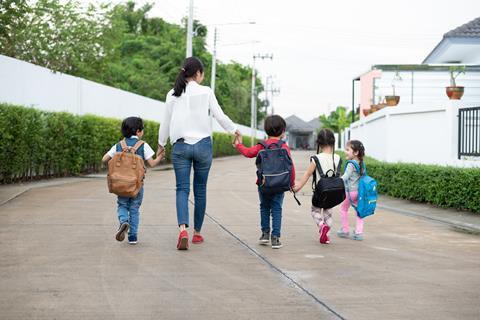Teacher John Dabell offers some insight into ensuring pupils receive a high standard of care while learning outside of the classroom.
The awesome responsibility of looking after pupils is magnified and brought into sharper focus when on school trips.
When we are detached from our usual support network, the duty of care we have is heightened and everything is on the radar and ‘red alert’.
On the whole, despite a few surprises and hiccups, trips are widely enjoyed without incident. But trips are not risk-free and things can and do go wrong, sometimes seriously and on rare occasions catastrophically.
With the rise of compensation culture, teachers have increasingly grown to dread organising and supervising school trips. You cannot take your eye off the ball for a second and although we try to contain risks within acceptable levels, in practical terms it is impossible to anticipate each and every potential danger despite the roll calls, head counts and fluorescent jackets.

When parents leave their child at the school gates they are in effect agreeing to allow the teachers and other staff at the school to act ‘in loco parentis’.
There are two statutory provisions that relate to the role of teachers acting in loco parentis or ‘in place of a prudent parent’.
First, the Children Act 1989 states that teachers have a duty of care towards the children under their supervision, as well as promoting the safety and welfare of the children in their care. The level of this duty of care is measured as being that of a ‘reasonable parent’.
The Health and Safety at Work Act 1974 puts a further obligation on the school as a whole to safeguard the wellbeing and safety of pupils in its care.
Whatever category of educational visit you are making, the basic principles of child protection are the same and that means our number one consideration is pupil welfare. The same standard of care applies in or out of lessons, on or off site, weekends or holidays so that:
- All pupils have the fundamental right to be protected from harm
- Careful consideration must be given to pupils who have special educational needs as they may be especially vulnerable or have specific safeguarding or medical needs
- Pupils have a right to be heard, to be listened to and to be taken seriously

“The primary duty of all staff is to keep the pupils safe from harm, whilst ensuring the educational benefits for their pupils; and with the correct preparation and training, school trips are fun and fulfilling for pupils and teachers.”
When we are part of any school trip then we are in the ultimate position of trust and must behave in a professional way at all times, staying within clearly defined professional boundaries.
This means operating in an open and transparent manner, demonstrating a high level of care, competence, safety awareness and conforming to best practice. The duty imposed on staff is to act with prudence towards children as a parent would in the same circumstances including a duty to take positive steps towards their wellbeing.
A key part of acting in loco parentis is having an emergency response plan that covers what to do if there is an incident. Worst case scenario planning should be well-rehearsed for trip-ups and there should also be a communications plan in place that covers how routine communications should be handled, including regular check-ins and calls to reassure people.
Schools can get advice on ‘what to do’ via the Outdoor Education Advisers’ Panel (OEAP) website at www.oeapng.










